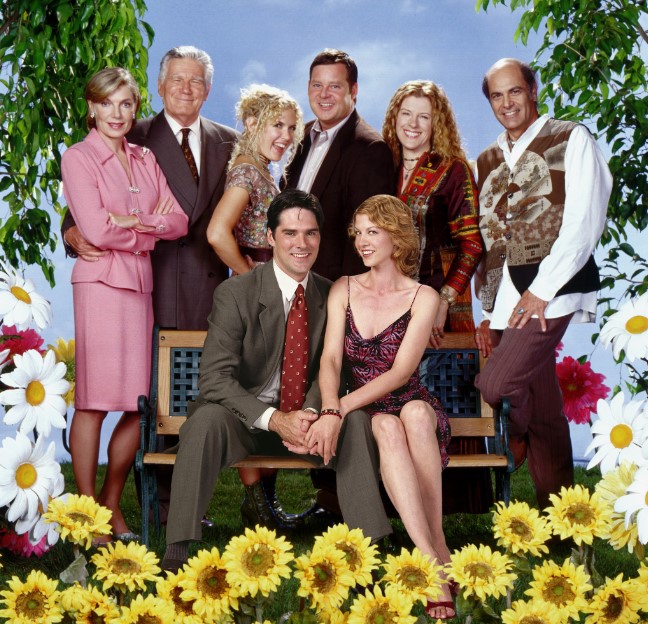"On the Waterfront," directed by Elia Kazan and starring Marlon Brando, is a cinematic masterpiece that delves into the gritty world of dockworkers and corrupt labor unions in 1950s New York.
Released in 1954, the film stands as a symbol of artistic integrity and social consciousness, bringing to light the plight of the working class and the moral struggle of its protagonist.
With its powerful performances, evocative cinematography, and compelling narrative, "On the Waterfront" remains a timeless classic that continues to captivate audiences and provoke contemplation on issues of loyalty, redemption, and standing up against injustice.
Plot Summary
The film unfolds in Hoboken, New Jersey, where longshoreman Terry Malloy (Marlon Brando) works on the waterfront under the control of corrupt union boss Johnny Friendly (Lee J. Cobb).
Terry's brother, Charley (Rod Steiger), serves as Friendly's right-hand man. The dockworkers are exploited, manipulated, and silenced to maintain the union's grip on the docks.
The story takes a dramatic turn when Terry becomes indirectly involved in the murder of Joey Doyle, a fellow dockworker who planned to testify against the union's criminal activities.
Edie Doyle (Eva Marie Saint), Joey's sister, seeks the truth behind her brother's death and crosses paths with Terry, leading to a complex and transformative relationship.
As Terry grapples with guilt and inner conflict, he finds solace and guidance in Father Barry (Karl Malden), a compassionate Catholic priest who advocates for the workers' rights.
Terry must confront his past, make difficult choices, and ultimately decide whether to remain silent and complicit or to stand up against the oppressive union and seek redemption.
Themes of Redemption and Moral Dilemma
One of the central themes of "On the Waterfront" revolves around redemption. Terry's journey from being an unwitting accomplice to a courageous individual fighting for justice is the heart of the film.
Through his interactions with Edie and Father Barry, Terry confronts his conscience and finds the strength to break free from the shackles of loyalty to the corrupt union.
The film also explores the moral dilemma faced by individuals caught in a web of corruption and oppression. Terry, torn between loyalty to his brother and the desire to do what is right, represents the struggle of those who must navigate complex ethical choices in an unforgiving environment.
Social Commentary and Realism
"On the Waterfront" serves as a poignant social commentary on the exploitation of laborers and the grip of organized crime on the waterfront during the 1950s. The film sheds light on the pervasive influence of corrupt unions, revealing the harrowing realities faced by the working class.
Elia Kazan's direction and Budd Schulberg's screenplay offer a gritty and realistic portrayal of the waterfront milieu. The film's portrayal of the harsh conditions, the oppressive atmosphere, and the pervasive fear among the dockworkers reflects the harsh realities of the time.
Marlon Brando's Performance
Marlon Brando's portrayal of Terry Malloy is one of the most iconic performances in cinematic history. Brando's raw and emotionally charged acting style brings depth and authenticity to the character, earning him an Academy Award for Best Actor. His delivery of the famous "I could've been a contender" monologue remains an enduring cinematic moment.
Supporting Cast and Performances
The film boasts an exceptional supporting cast that contributes to its brilliance. Eva Marie Saint shines as Edie Doyle, bringing grace and vulnerability to her role. Karl Malden's portrayal of Father Barry is both compassionate and inspiring, representing the moral compass of the film.
Lee J. Cobb's performance as Johnny Friendly is chilling and formidable, capturing the essence of a manipulative and ruthless union boss. Rod Steiger's portrayal of Charley, torn between loyalty and moral awakening, adds further complexity to the narrative.
Cinematography and Score
Boris Kaufman's cinematography skillfully captures the starkness of the waterfront environment and enhances the film's gritty realism. Leonard Bernstein's evocative score complements the emotional depth of the story, heightening the tension and drama of crucial scenes.
Legacy and Impact
"On the Waterfront" received critical acclaim upon its release and won eight Academy Awards, including Best Picture and Best Director. The film's enduring impact on cinema and culture is evident through its inclusion in countless lists of the greatest films ever made.
Beyond its cinematic achievements, "On the Waterfront" also had significant real-world implications. Elia Kazan's cooperation with the House Un-American Activities Committee (HUAC) during the era of McCarthyism led to controversy and ethical debates about the film's message and the consequences of informing on others.
"On the Waterfront" remains a cinematic triumph that resonates with audiences across generations. Its exploration of redemption, moral dilemmas, and social issues continues to hold relevance in contemporary society.
Brando's legendary performance, Kazan's deft direction, and the film's unflinching portrayal of injustice and corruption all contribute to its enduring legacy. As we revisit the docks of Hoboken through Terry Malloy's eyes, "On the Waterfront" compels us to examine our own sense of morality, courage, and compassion in the face of adversity, solidifying its position as a timeless classic in the annals of film history.
